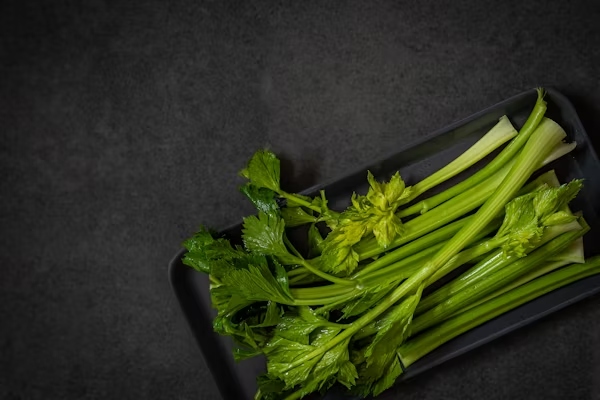Introduction
In the ever-changing landscape of modern nutrition, certain foods rise to fame only to be overshadowed by new health fads. Yet, some humble staples persist quietly, carrying timeless benefits for human health and lifestyle. Pravi celer—literally “real celery” in several Slavic languages—stands as one of those underrated yet powerful plants. While often dismissed as a mere crunchy garnish or diet-friendly snack, celery has long been a cornerstone of traditional healing, culinary traditions, and holistic living. Today, as people seek healthier, sustainable, and natural approaches to well-being, pravi celer is experiencing a revival.
This article explores the history, nutritional benefits, cultural significance, and modern applications of real celery in daily living.
Historical Roots of Celery
Celery has been cultivated for thousands of years. Ancient civilizations in Egypt, Greece, and Rome valued celery not only as food but also as medicine. In traditional European herbalism, celery seeds were used as remedies for inflammation, digestive issues, and joint pain.
The Slavic phrase pravi celer highlights authenticity, distinguishing natural, unprocessed celery from its derivatives, extracts, or artificial flavorings. Historically, this authenticity was tied to household gardens, where celery grew alongside herbs like parsley and dill, forming part of everyday diets and rituals.
Nutritional Profile: A Hidden Powerhouse
Celery may look unassuming, but its nutrient density and health-promoting compounds are remarkable:
-
Low in calories, high in hydration: Celery is about 95% water, making it ideal for hydration and weight management.
-
Rich in vitamins and minerals: Provides vitamins A, C, and K, potassium, calcium, and folate.
-
Antioxidant properties: Contains flavonoids like apigenin and luteolin that combat oxidative stress.
-
Fiber content: Aids digestion, supports gut health, and promotes satiety.
-
Electrolytes: Helps balance fluids, making celery useful for athletes and active individuals.
Health Benefits of Pravi Celer
-
Supports Digestive Health
-
The fiber in celery promotes healthy bowel movements and nourishes beneficial gut bacteria.
-
-
Anti-Inflammatory Properties
-
Compounds like apigenin reduce inflammation, benefiting conditions such as arthritis.
-
-
Cardiovascular Wellness
-
Celery contains phthalides, natural compounds shown to lower blood pressure and improve circulation.
-
-
Hydration and Detoxification
-
With high water and electrolyte content, celery acts as a natural detoxifier, supporting kidney function.
-
-
Weight Management
-
Low-calorie yet nutrient-dense, celery is often included in balanced diets for sustainable weight control.
-
Pravi Celer in Daily Living
Culinary Uses
-
Traditional soups and stews: In Slavic, Mediterranean, and Asian cuisines, celery is a flavor base.
-
Fresh juices and smoothies: Popular in modern wellness trends for detox and hydration.
-
Snacking and salads: Paired with hummus, nut butters, or light dressings for a nutrient-rich snack.
-
Seasoning with seeds: Celery seeds are a powerful spice in pickles, breads, and herbal remedies.
Beyond the Kitchen
-
Herbal medicine: Celery seed extracts are still used in natural remedies for inflammation and blood pressure.
-
Cultural symbolism: In some European traditions, celery was considered a protective plant and a household staple.
-
Holistic wellness: Celery juice cleanses have gained popularity, though experts recommend balanced use rather than extremes.
Cultural and Symbolic Relevance
The concept of pravi celer emphasizes authenticity in food and lifestyle. In a world of processed snacks, artificial supplements, and synthetic flavors, returning to “real celery” serves as a reminder of the importance of unaltered, natural nutrition.
In Slavic cultures, authenticity carries weight. “Pravi” implies something true, pure, and trustworthy. Thus, pravi celer symbolizes not only a vegetable but a philosophy of returning to roots, embracing tradition, and valuing nature’s simplicity.
Modern Relevance and Lifestyle Trends
Today, celery has regained attention through movements like clean eating and plant-based living. Social media has amplified celery juice as a “superfood elixir,” sparking both enthusiasm and skepticism. While celery is not a miracle cure, science confirms that it supports balanced diets, sustainable living, and preventive health care.
The modern application of pravi celer lies in its simplicity and accessibility: it’s inexpensive, easy to grow, and versatile in daily meals. Unlike exotic superfoods, celery is familiar, sustainable, and deeply connected to local traditions worldwide.
Challenges and Misconceptions
-
Overhyped trends: While celery juice cleanses are popular, exaggerated claims of curing chronic illnesses have caused controversy.
-
Digestive sensitivity: Some individuals may experience bloating from excessive raw celery intake.
-
Underrated status: Despite its benefits, celery is often overlooked as “just water and crunch,” ignoring its deeper value.
The Future of Pravi Celer
As consumers shift toward natural wellness and sustainable living, pravi celer is poised for greater relevance. Possible trends include:
-
Functional foods: Celery-based supplements and powders.
-
Sustainable agriculture: Celery as part of eco-friendly farming systems.
-
Holistic nutrition: Celery integrated into personalized wellness programs.
-
Cultural revival: A renewed appreciation of traditional diets featuring authentic, local produce.
Conclusion
Pravi celer is far more than a crunchy diet snack—it is a symbol of tradition, authenticity, and natural health. From ancient remedies to modern wellness trends, celery has quietly persisted as a reliable ally in human nutrition. In embracing pravi celer, we rediscover the power of simplicity: the idea that real, unprocessed foods carry wisdom that aligns body, culture, and identity.







